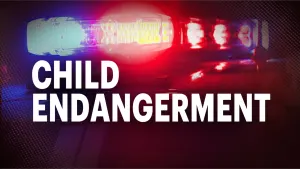More Stories
Carmine Megaro says he was 19 when the priest he trusted sexually assaulted him — a disclosure that came years later, after he says he struggled with guilt, depression and isolation.
“I was angry at myself for allowing it to happen… I held it in for so long, but I also felt like I had no ally in the church to tell and to trust,” Megaro said. “It became a daily basis… the self-harm and the thoughts of suicide because I felt very alone.”
The Diocese of Brooklyn found Megaro’s claims credible, saying Father Philip Pizzo had groomed and sexually harassed him. But under current law, the priest cannot face criminal or civil charges. In New York, unless the victim is a minor or force is involved, the statute of limitations for many sexual-assault charges generally runs out after five years.
“It’s too traumatic to deal with and so often by the time people have processed it, it’s way beyond the statute of limitations and then they’re basically out of luck in terms of going to court,” Assemblymember Linda Rosenthal said.
Rosenthal, who sponsored the Adult Survivors Act, noted that the law created a one-year civil “look-back” window; more than 3,000 lawsuits were filed before it expired in 2023. She said criminal cases that have already expired can’t be revived because the Constitution forbids retroactive prosecutions, but she’s open to extending the civil statute again.
“You think you’re at fault when in fact, it’s the abuser, and that’s part of the dynamic of the power imbalance,” Rosenthal said. “It generally does have bipartisan support, although the Child Victims Act took 14 years to pass. That’s because the people who were doing the abuse involved powerful industries. The church were, in large, in the way for 13, 14 years because they blocked passage.”
Asked whether a new bill could include another retroactive window, Rosenthal said: “We’ve done it already. So, yeah, we would discuss another look back period for people who didn’t know about the look back that we passed some years ago.”
Megaro says the deadlines left him without options.
“The fact that I had to go through what I went through and then be able to digest it and process it quickly and be able to tell everybody when I think it’s my fault… it just seems absurd,” he said.
Rosenthal said any new push will come down to timing and public support when lawmakers return to Albany in January.
More from News 12
0:17

Man killed in Copiague hit-and-run crash
0:44

Centereach woman files lawsuit against Nassau police over 2024 arrest at Legislature hearing
0:21

Man wanted for forcibly touching shopper in Valley Stream Target store
0:23

Man accused of leaving 3-year-old daughter inside car in Valley Stream
2:01

Man accused of sexually abusing children at Medford T.J. Maxx pleads not guilty
0:35
